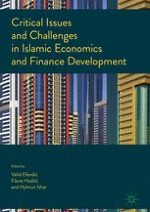
2017 | OriginalPaper | Buchkapitel
1. How Do Sovereign Sukuk Impact on the Economic Growth of Developing Countries? An Analysis of the Infrastructure Sector
verfasst von : Ahlidin Malikov
Erschienen in: Critical Issues and Challenges in Islamic Economics and Finance Development
Aktivieren Sie unsere intelligente Suche, um passende Fachinhalte oder Patente zu finden.
Wählen Sie Textabschnitte aus um mit Künstlicher Intelligenz passenden Patente zu finden. powered by
Markieren Sie Textabschnitte, um KI-gestützt weitere passende Inhalte zu finden. powered by